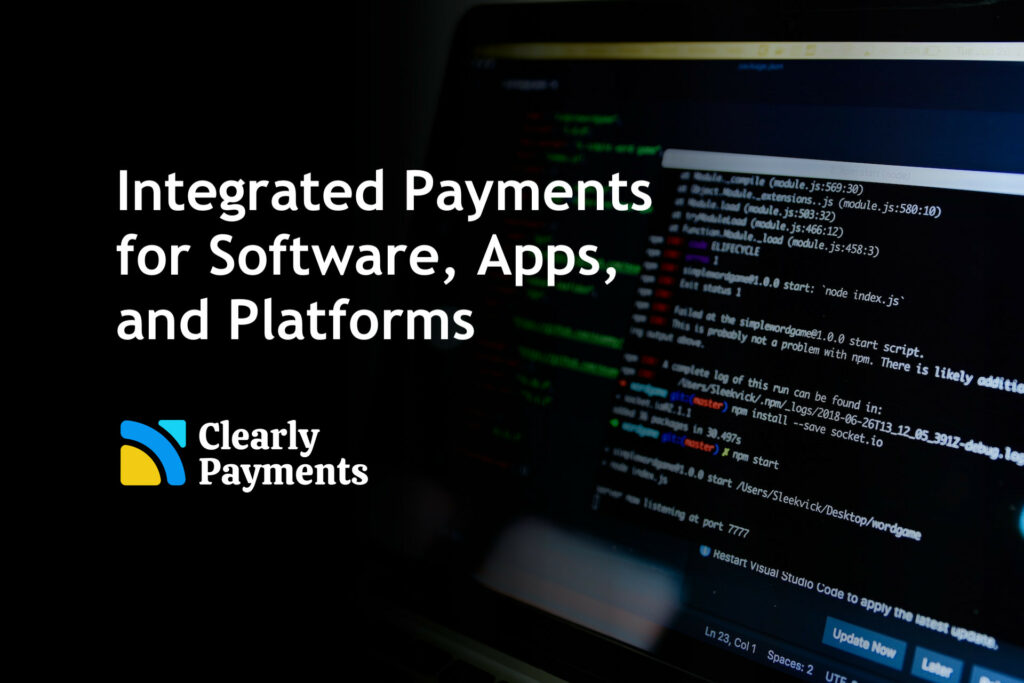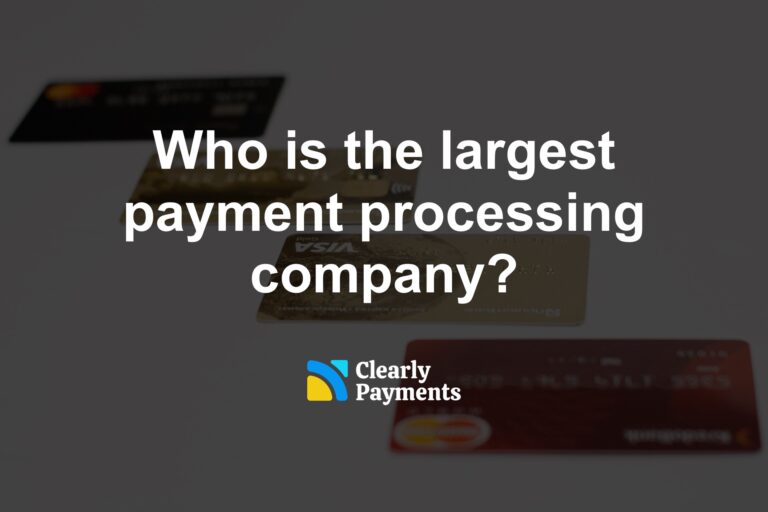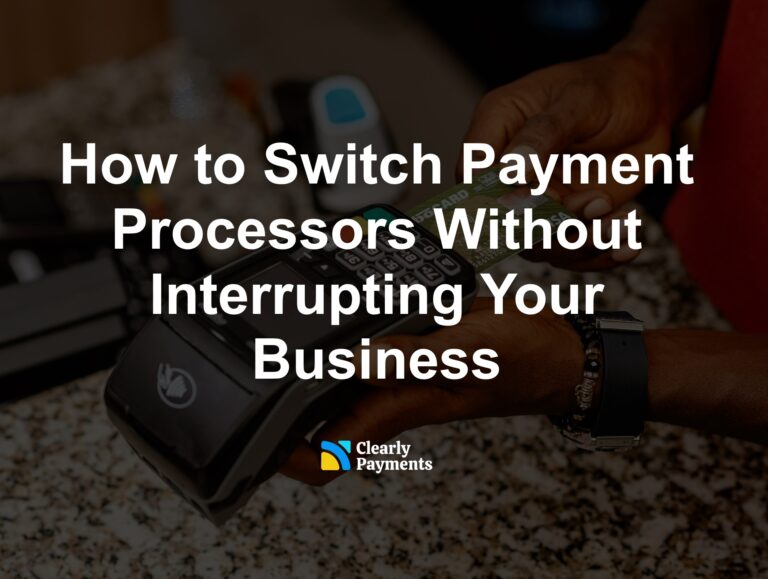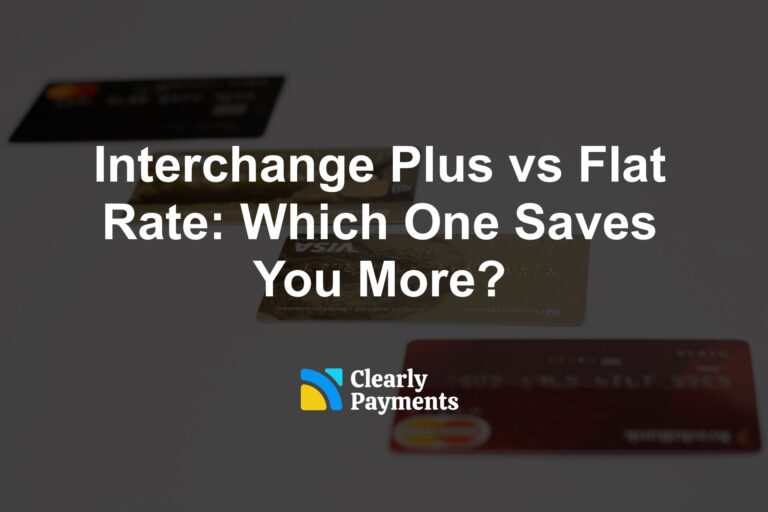The payment processing market is estimated to reach $248.93 billion by 2028, growing at a good rate of 14.5% per year. The growth can partly be attributed to the increasing penetration of the internet coupled with smartphone apps and software platforms embedding payments into the user experience that makes payment seamless.
Integrated credit card processing is a term used to describe a system where credit card payment processing is seamlessly integrated into a software platform, such as an e-commerce website, point of sale (POS) system, mobile application, accounting software, or other systems. In this article, we’ll explore integrated credit card processing and why it’s becoming an increasingly popular choice for technology companies and merchants.
What is integrated credit card processing?
Integrated credit card processing is a system that enables merchants to accept credit card payments directly within their existing software, without having to switch to a separate payment processing platform.
For example, an eCommerce website with integrated credit card processing can allow customers to make purchases and pay for their order directly on the website, without having to navigate to a different site to complete the transaction.
Another example is with POS systems. If a POS system integrates with a credit card machine, after the sales person types in the amount in the POS, the amount will automatically be sent to the credit card machine. This speeds up checkouts and reduces manual errors.
Payment integration typically involves the use of application programming interfaces (APIs) or software development kits (SDKs) provided by payment service providers such as Clearly Payments, PayPal, First Data, or Stripe. By integrating with these providers, businesses can accept a variety of payment methods such as credit and debit cards, e-wallets, and mobile payments, without the need for customers to leave the business’s website or app to complete the transaction.
Why is integrated credit card processing important?
Integrated credit card processing is important for businesses of all sizes and industries as it provides a convenient and efficient way to process payments, improve cash flow, and enhance the customer experience.
One of the key benefits of integrated credit card processing is that it allows businesses to streamline their payment processing workflows, reducing the time and effort required to process payments. This can help businesses improve their overall efficiency, save time, and increase productivity.
Integrated credit card processing is also crucial for businesses that rely on recurring revenue models, such as subscription-based services or membership programs. By automating the payment process, businesses can ensure that payments are processed on time, reducing the risk of delinquent accounts and improving cash flow.
Another important benefit of integrated credit card processing is enhanced security. Integrated credit card processing solutions typically come with advanced security features such as tokenization and encryption, which help protect sensitive customer data and reduce the risk of fraud. This can help businesses build trust with their customers and protect their brand reputation.
Integrated credit card processing also provides businesses with real-time reporting and analytics, allowing them to track their sales, revenue, and transaction data in real-time. This can help businesses make informed decisions about their operations and marketing strategies, improving their overall performance.
What types of software and platforms integrate payments?
Integrated credit card processing is suitable for a wide range of businesses, from small e-commerce sites to larger retail operations. It is especially beneficial for businesses that have an existing software platform and want to streamline their payment processing. Integrated processing can also be a good choice for businesses that want to improve the customer experience and reduce the risk of fraud.
There are various types of software and platforms that integrate payments. The world is moving digital, so the types of platforms integrating payments is growing. Here are some of the popular types of platforms that leverage integrated payments.
E-commerce platforms: Platforms like Shopify, WooCommerce, Magento, and BigCommerce provide built-in payment processing options that can be easily integrated into an online store.
Point of Sale (POS) systems: POS systems such as Square and Lightspeed provide integrated payment processing capabilities for brick-and-mortar businesses.
Mobile payment platforms: Payment platforms like Apple Pay, Google Pay, and Samsung Pay offer integrated payment processing for mobile apps and websites.
Accounting software: Accounting software such as QuickBooks and Xero offer integrated payment processing to allow businesses to receive payments and automatically reconcile their accounting records.
Custom software: Many businesses build custom software applications for specific business processes, and integrated payment processing can be added to these applications using payment processing APIs and SDKs.
- Marketplaces: Online marketplaces connect buyers and sellers, like eBay or Etsy, allowing them to engage in transactions for goods and services. These marketplaces can directly include payment processing to facilitate transactions.
How to choose the right integrated credit card processing solution
Every software platform may have a unique workflow, however, three common things to look out for when choosing an integrated payments platform are security, compatibility, and payment methods.
The security of customer data and financial information is paramount. Make sure the solution you choose provides robust security features such as tokenization, encryption, and fraud detection to protect against data breaches and reduce the risk of fraud. There are specific payments standards such as PCI DSS which you want to make sure works well with your platform.
Ensure that the solution is compatible with your existing systems, hardware, and payment gateway to ensure seamless integration. This will help you avoid any disruption or delays during the transition process. You’ll want to make sure their APIs and SDKs are well-documented and compatible with your platform. Some systems may want to integrate level 3 payment processing data, so verify your payment processor supports this through APIs.
Lastly, make sure you get the payment methods your customers need. Consider whether the payment processor supports multiple payment methods such as credit cards, debit cards, mobile payments, contactless payments, and EFT/ACH. Offering customers more payment options can improve their experience and increase sales.




